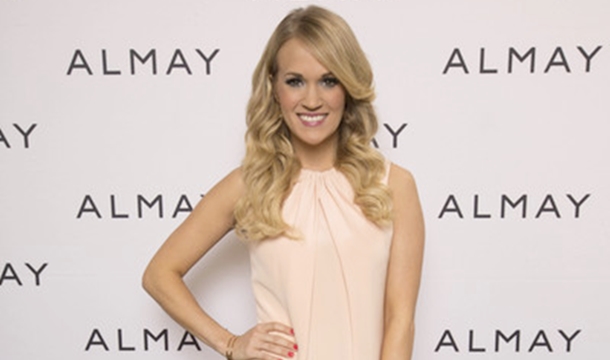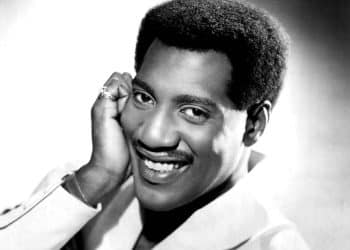Are women in Country getting the short end of the stick? According to Carrie Underwood, women in Country music have way too hard of a time trying to break through a seeming male dominated genre and even when they do, it's like there is room for only one or two female artists at a time.
"You would think that we would be farther along in the thinking about women in country music. I like to think things are getting better, but then I see stats like and realize that women really do seem to get the short end," Underwood shared recently. "There is certainly not a shortage of talented ladies out there that want so badly to get their fair shot in this business. But there seems to be only room for only a few… There seem to be so many male singers out there who can be viewed as similar, and there seems to be plenty of room for all of them."
Underwood's words come just days after Billboard announced that just three of the top 25 artists on its Top Country Songs chart were solo women in both 2012 and 2013. In addition to Underwood, that top 3 included Miranda Lambert and Taylor Swift. Everyone else on the list was a male artist.
According to the "Before He Cheats" singer, "American Idol" really gave her a boost. If not for the hit reality competition, Underwood says she'd still be trying to break through the male dominated market.
"We see new male artists have their first single reach No. 1 on the charts, but it generally takes a female a lot longer to build momentum, Underwood told Billboard. "I know that I am an exception to this, but I [also] know that if I hadn’t made my place in country music via 'American Idol,' I probably could have tried to make it for the rest of my life and never made any progress."
Thoughts?
Do you ever wonder about the challenges women face in the music industry? Well, according to country music superstar Carrie Underwood, women are getting the ‘short end’ when it comes to opportunities and recognition.
In a recent interview, she shed light on the struggles that female artists often encounter and highlighted the need for gender equality in music.
Carrie Underwood, known for her powerhouse vocals and empowering anthems, believes that women in music are facing an uphill battle. She expressed her concern over the limited number of female voices being heard on radio stations and streaming platforms. According to Underwood, there is an undeniable disparity between male and female representation in the industry.
With this revelation, she aims to bring attention to not only the obstacles faced by women but also the importance of leveling the playing field for all talented artists. Through her words and actions, Underwood strives to spark a conversation about gender inequality in music and advocate for change.
Challenges Faced by Women in the Music Industry
You’re constantly battling stereotypes and biases, fighting to be heard and recognized in a male-dominated industry. As a woman in the music industry, you face unique challenges that can hinder your success.
One major challenge is the lack of representation and opportunities. It’s not uncommon to see men dominating the charts and receiving more airtime than their female counterparts.
In addition to this, women often have to work twice as hard to prove their talent and worthiness. There is a tendency for people to underestimate female musicians or dismiss them as mere eye candy. This creates an unfair playing field where women have to constantly prove themselves over and over again.
Furthermore, there is also a persistent gender pay gap within the music industry. Women are often paid less than men for performing at concerts or festivals, despite having similar levels of fame and popularity. This disparity not only affects women’s financial stability but also perpetuates the idea that their contributions are somehow worth less than those of their male counterparts.
Overall, being a woman in the music industry comes with its own set of challenges. From battling stereotypes and biases to fighting for equal opportunities and fair compensation, it’s clear that women still get the short end of the stick. However, with voices like Carrie Underwood speaking up about these issues, there’s hope for change and progress in creating a more inclusive and equitable industry for all musicians.
The Need for Gender Equality in Music
Lack of gender equality in the music industry hinders the growth and potential of talented individuals. It’s disheartening to see how women are consistently given the short end of the stick in this industry. Despite their undeniable talent, they often face numerous challenges such as unequal opportunities, limited representation, and a constant struggle for recognition.
Firstly, unequal opportunities play a significant role in hindering women’s progress in the music industry. Many talented female artists find it difficult to break into mainstream platforms and receive the same level of exposure as their male counterparts. This lack of equal opportunities not only limits their success but also perpetuates the notion that women’s voices are less valuable or marketable than men’s.
Secondly, limited representation is another major issue faced by women in music. The underrepresentation of women across various genres undermines their contributions and reinforces stereotypes about what kind of music women can create or perform. This imbalance not only affects aspiring female musicians but also fails to provide diverse perspectives and experiences to listeners.
Lastly, there is an ongoing struggle for recognition when it comes to female artists. Despite producing exceptional work, many talented women are overshadowed by their male counterparts or simply overlooked by industry gatekeepers. This lack of acknowledgment not only deprives these artists from reaching their full potential but also sends a discouraging message to aspiring young females who dream of pursuing a career in music.
Achieving gender equality in the music industry is crucial for unlocking the full potential of talented individuals irrespective of their gender. By providing equal opportunities, promoting diverse representation, and recognizing achievements based on merit rather than gender bias, we can foster an inclusive environment where all musicians thrive and contribute their unique talents to our musical landscape.
Conclusion
In conclusion, Carrie Underwood’s statement about women getting the ‘short end’ in music is a powerful message that sheds light on the challenges faced by female artists in the industry.
From unequal representation to gender bias, women often find themselves fighting an uphill battle for recognition and success. However, Underwood also emphasizes the need for gender equality in music, highlighting the importance of creating opportunities and platforms that empower all musicians, regardless of their gender.
Underwood’s words serve as a call to action for both the music industry and society as a whole. It’s crucial to acknowledge and address these disparities by promoting inclusivity, breaking down barriers, and providing support systems for female artists.
By doing so, we can create a more diverse and vibrant musical landscape where talent and creativity thrive without discrimination. Ultimately, it’s through collective efforts that we can ensure equal opportunities for all musicians and celebrate their contributions to the art form we love.






